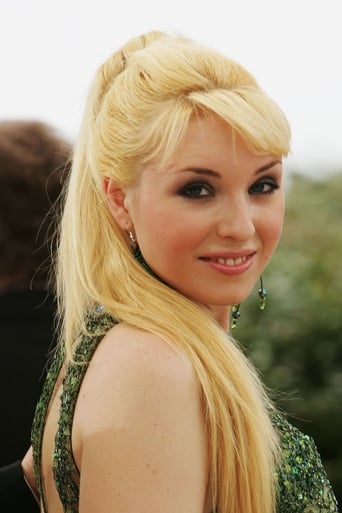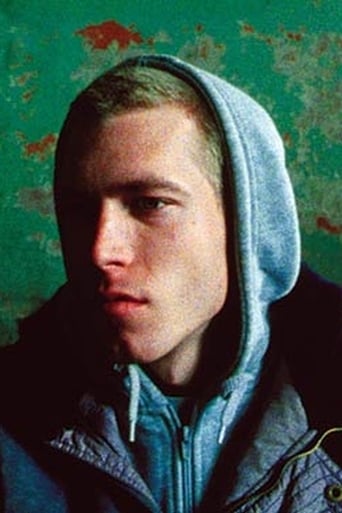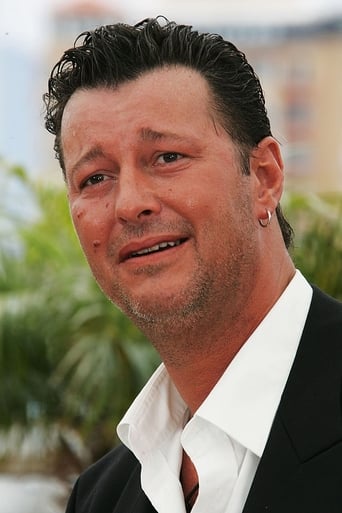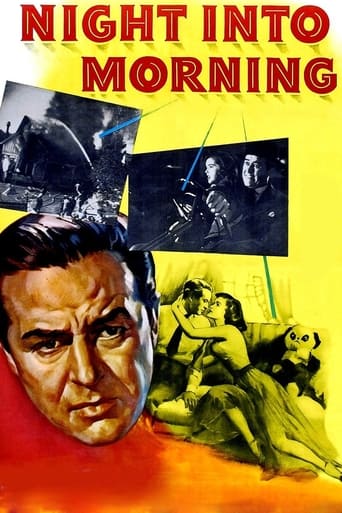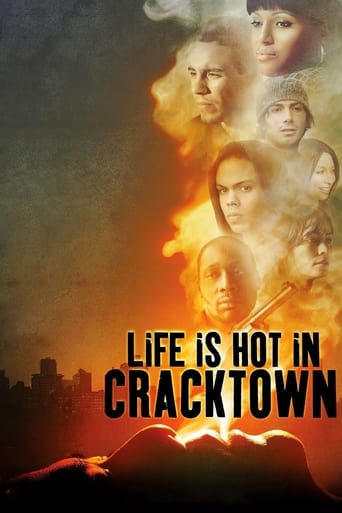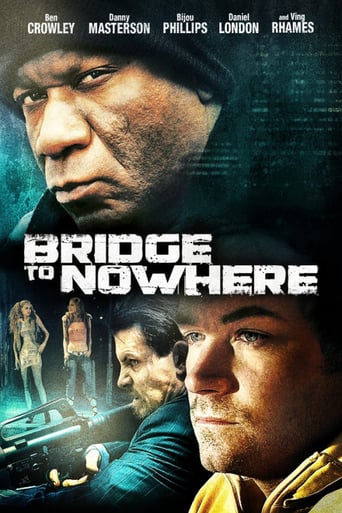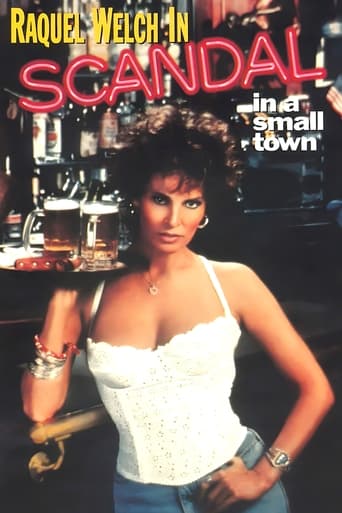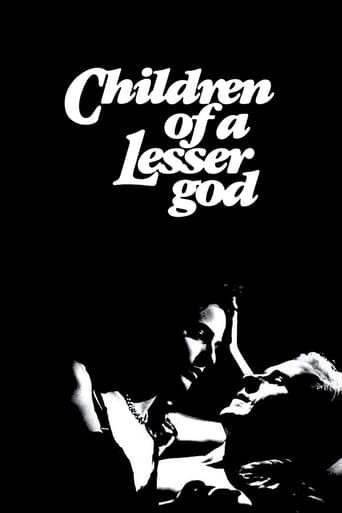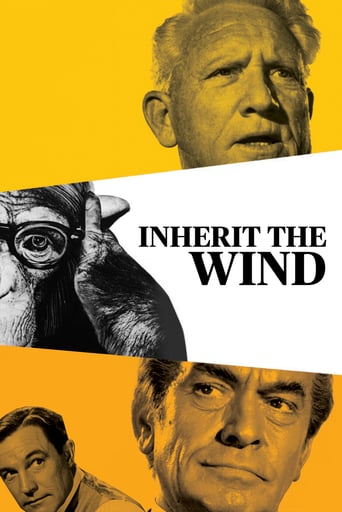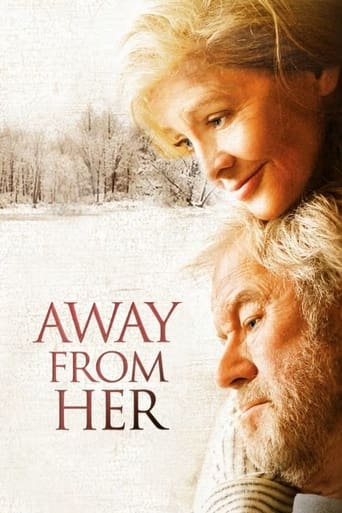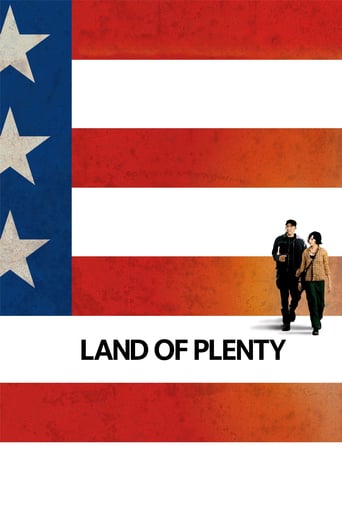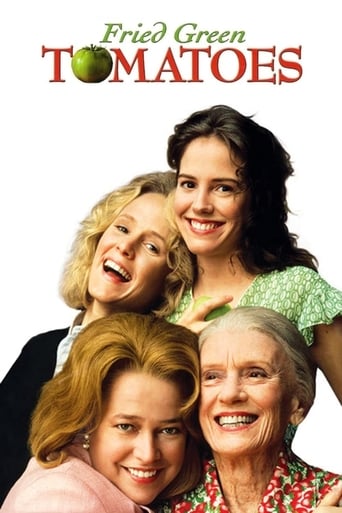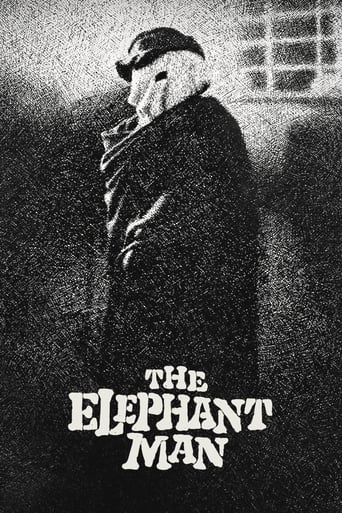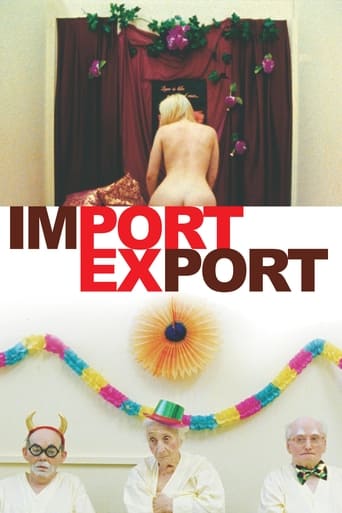

Import/Export (2007)
A nurse from Ukraine searches for a better life in the West, while an unemployed security guard from Austria heads East for the same reason. Both are looking for work, a new beginning, an existence, struggling to believe in themselves, to find a meaning in life..
Watch Trailer
Cast


Similar titles
Reviews
Very disappointing...
Powerful
Best movie ever!
One of the most extraordinary films you will see this year. Take that as you want.
I saw this on TV and it was prefaced by a short interview with the director / co-writer. His aim was to show raw reality and if that meant some sequences bordered on the over extended then so be it. The longer your nose was rubbed in it (my words not his) the better you would learn the truth. Trouble is everything seemed over extended so the technique lost its impact.Nothing in the film offended me as such, certainly not the graphic nudity of the sex-for-money scenes which were part of the films core - human exploitation, who is most degraded by it and how do you get out from under it. In his intro the director repeatedly stated that the truth does no need to be embellished. However I felt that philosophy was an after the fact justification of a film which seemed badly wanting in terms of editorial input and basic direction. Most scenes were in medium shot using a single camera. Maybe that's all he had. For me that single technique used in such a long film ended up distancing me from the characters. It created a peep show feel where what was promised were insights.Although I never lost sympathy and concern for the plight of the Ukrainian nurse and some of her charges I ended not caring about almost everyone else - largely because of the 'distancing' camera work.Many viewers already know that some people with a little money / power can be complete bastards to people with neither and desperate for either. It doesn't take over 2 hours to sell that message.Watch it on DVD - have your thumb hovering over fast forward.
I'm not sure if Austrian film maker Ulrich Seidl makes the best use of the extended study of duality between two seemingly random; seemingly disconnected European people plodding on through their lives as he might'v done, in this, his 2008 film Import/Export. As characters, his two leads are motivated and ultimately somewhat decent folk, particularly when placed up against those they spend the majority of their time with, but folk we feel are stuck in an inescapable world of sleaze; violence and discomfort. They travel their continent looking for incident and such in order to advance their existences, but are mostly always greeted with pain; frustration; antagonism and failure – happenings and the like which, whilst often carrying with them degrees of smut which we rightfully find uncomfortable, stick it in a break it off for good measure. The film is good value for its early part; Seidl's piece probably about thirty or so minutes too long, and where the equal balance between either strand felt in place for the first hour, such a parity vanishes by the time his heroine has reached that of a hospital and the whole things beds down into a near infuriating drama peppered with content we begin to question the need of.The film follows that of two people, one male and one female; one of whom is Paul (Hofmann), an athletic young Austrian living in an apartment whose spare room is rife with items such as boxing gloves; gym equipment and military webbing, and whose interest in such things extends to the fact he maintains a job in security at a local shopping mall demanding constant athleticism through its rigorous training regime. Olga (Rak), a young Ukrainian woman, works in her drab in-appearance; colourless; snowy homeland as a nurse in a hospital, but grows frustrated at her low wages which causes her to head west. This is in sync with around about the same time Paul decides to go in the opposite direction, specifically towards Slovakia, for various reasons linked to his failed relationship with a girlfriend and problems in owing money to some unscrupulous people.Principally, the film is about the apparent duality prominent between these two people; how, in spite of gender, nationality and differing backgrounds of living in the nations of Austria and Ukraine respectively, two people can wade through similar, if not identical, mires purely so as to reach similar denouements. Perhaps if they'd somehow bumped into each other in this wacky, mixed up world, they'd have been able to solve some of one another's problems and got along better in life. Their quests in either direction both begin with that of frank, sexualised encounters; encounters of which are humiliating and rely heavily on that of a distinct element of power instigated certain people within. Olga, with her low-pay frustrations, happens across an Internet peep-show job operating out of a lonely disused building, whose offices and such have been converted into small dens in which the girls in-front of the web cameras do whatever it is customers logged on at the other end tell them to. During a night shift at his mall job, Paul prowls the underground car park area and is apprehended by a group of youths; youths whom consequently strip him and instigate a demeaning session of mock-sadomasochism involving the man's security equipment that he had with him in the form of belt and handcuffs.In owing money to various people, Paul hulks out to the bleak-looking East of the continent with his stepfather on a job delivering beaten-up video arcade games and sweet machines. Olga's situation, again infused with that of money, sees her continue to earn very little when the peep-show job falls through out of an inability to understand the required languages online. We find ourselves leaning towards Paul's strand as things develop; Olga's bedding down into a hospital ward-set groove in which elderly men living their last weeks begin to find our Olga rather attractive seeing the whole thing descend into a series of sequences shot on static, tripod mounted cameras bringing more attention to the craft of the thing than is required, whilst more often than not reminding us of Hungarian filmmaker Kornél Mundruczó's rather unpleasant 2005 film Johanna. Paul's begins to become imbued with a sense of antagonism, as he falls foul of some gypsies en route and then with his stepfather when attitudes in regards to women have them clash; the dragging of Paul into his stepfather's attitudes and lifestyle in regards to women eventually leading to awkward and ill-fated altercations forcing Paul into redistributing his priorities.There is a sense of frankness about proceedings, and I've little doubt Seidl makes the films he wants to make in spite of the cross-cultural settings and international teams behind the project; a sense of frankness evident in the film's title, a cold and inherently cutoff name balancing two opposites with little more than a cut-and-thrust 'slash' carving the two words and forcing them apart from one another. But we find it difficult to get as excited about the film as we would perhaps like; certainly, the film's sexualised content is disgraceful and constructed in an uneroitc fashion – a character's departure from proceedings as things step up a gear later on in a motel room echoes that of our own mind having already exited the scene. Additionally, cries of sexism on Seidl's behalf ought to fall on deaf ears as Paul is unwillingly dragged through a plethora of flimsy Eastern European girls; the man falling foul of his stepfather's hormonal urges around the same time as Olga herself gets caught off-guard by some of those leering aforementioned elderly men doing very little for the masculine cause in this respect. Therein lies the issue, the sense that these people are precisely the same, and yet light-years apart hammering us on the head again; the film is not without merit, but it is without an awful lot of much else.
I came to this film when it was mentioned by a fellow IMDb user who occasionally points me towards some European films that I have not seen. More often than not they are fairly bleak affairs but, while Hollywood probably dominates the action genre, Europe tends to be best at films dealing with the bleakness of life. And so it is here in a film that painstakingly depicts the bleakness of the lives of two characters. Olga is a nurse in the Ukraine who travels to the West for a better life and finds herself working in an old people's home as a cleaner. Meanwhile Pauli is a young man in Austria who has little going for him employment-wise and finds himself under the wing of his morally defunct step-father.It is not a theme that I haven't seen before but here it seems to be the entire film and there is surprisingly little in the way of narrative framework, far less actual narrative flow to it. In itself this maybe isn't a problem because "experience" films can work as well as "start/middle/end" stories – but to go for in excess of two hours without much of a story is a tall order and it is one that this film cannot fill. Without much of a story or characters what results is essentially a wallow in some specific examples of life as survival until death and very little else. This message is perhaps fair enough but it is delivered without much intelligence and comment, just scene after scene laid out. It doesn't even really have any sort of central scenes or direction to it and indeed doesn't even have any "big" moments that one could see as having been built to – although I'm not saying it would have been better by artificially having them.The cinema vérité style is to be commended because it does convince as a piece of realism (which is why perhaps not having one big "event" is a good thing) but the downside of it is that, like life sometimes, it is pretty dull and doesn't really have much meaning behind it. And this is what I took away from the film because I did find it to be far too long for the loose material to sustain and it did feel like each and every scene had only the same message to deliver and it just kept repeating that long after the audience had gotten it. I guess if you're looking for a film to confirm the drabness of existence then this is it but it must be said that there are films that do it with a lot more meaning and heart than this one.
There have been many films in recent years, particularly European ones themed around what has become clearly one of the most important humanitarian and social issues to haunt the new century; immigration. Naturally a huge complex subject and many films have already touched some of the basic points as to why certain peoples have in the first place emigrated and then the problems they faced in their new world; often very serious ones being horrifically exploited in the hands of others.Still, I think it would be wrong to conclude that Ulrich Seidl's challenging film is a discourse purely on this. While it does genuinely highlight many vital questions about immigration that I'm sure many people would rather not think about (let alone willingly watch when they go for some light relief in a cinema!), I think that the main purpose of the film is to try to make us understand the actions of to two very different young people, Olga and Pauli, The two characters we spend the entire film following while at the same time provoking us to question our own expectations and assumptions about them and others.It just so happens that these characters both want to escape their very upsetting realities and even more worrisome futures. Both do this by leaving their home lands. Olga leaves Ukraine for Austria, and Pauli goes in the opposite direction.Both characters never interact with each other or cross each others paths thank goodness, it would be a very worn cliché if they had. Instead we are left at the end of this provoking film with many unanswered questions about the actions we have witnessed, what drives them and where are they going.The film is incredibly refreshing for its lack of clichés I felt. At many points Seidl sets up our expectations using quite classical narrative techniques and in almost every case, what we think is about to occur doesn't. The paths both take are incredibly believable, helped enormously by the use of non actors throughout the entire film. It's really hard to forget your watching something that has been constructed when it features so many unnerving scenes of real people that are clearly not acting, just "playing" themselves. Both characters, especially Pauli is quite different from the 1st impressions we are given and its incredibly refreshing and sometimes relieving that our worst fears or own clichés about who these people may be are proved to be wrong.The only obvious cliché I found was Pauli's disgusting step father Michael. I felt this made an important point in itself, to counter the often very negative news stories people in many western 1st world countries are fed about immigrants. In this film, a film by a developed 1st world European nation, the most unsympathetic low character is from said 1st world country - the land of the film maker himself! - the characters actions while he is aware are an important turning of the tables, reminding us as to how "we" may be seen or act when abroad.Although this is left completely open at the rolling credits there is a very subtle positivism that the very compassionate direction and writing leaves us with I found. While anything could happen after the last shot, it seems clear that both now have at least faith; a life to believe in, one worth struggling for.


